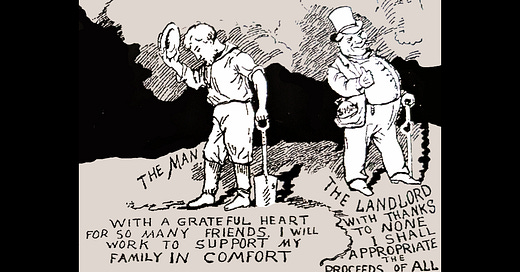Every so often the discourse gives us a new guy who announces that the way we’ve been talking about “socialism” is insufficiently inclusive, particularly for progressive capitalist Democrats who want to think of themselves as socialists. Today, it’s Paul Crider from Liberal Currents:
I invite liberals everywhere to retire this antiquated definition of so…
Keep reading with a 7-day free trial
Subscribe to Carl Beijer to keep reading this post and get 7 days of free access to the full post archives.





